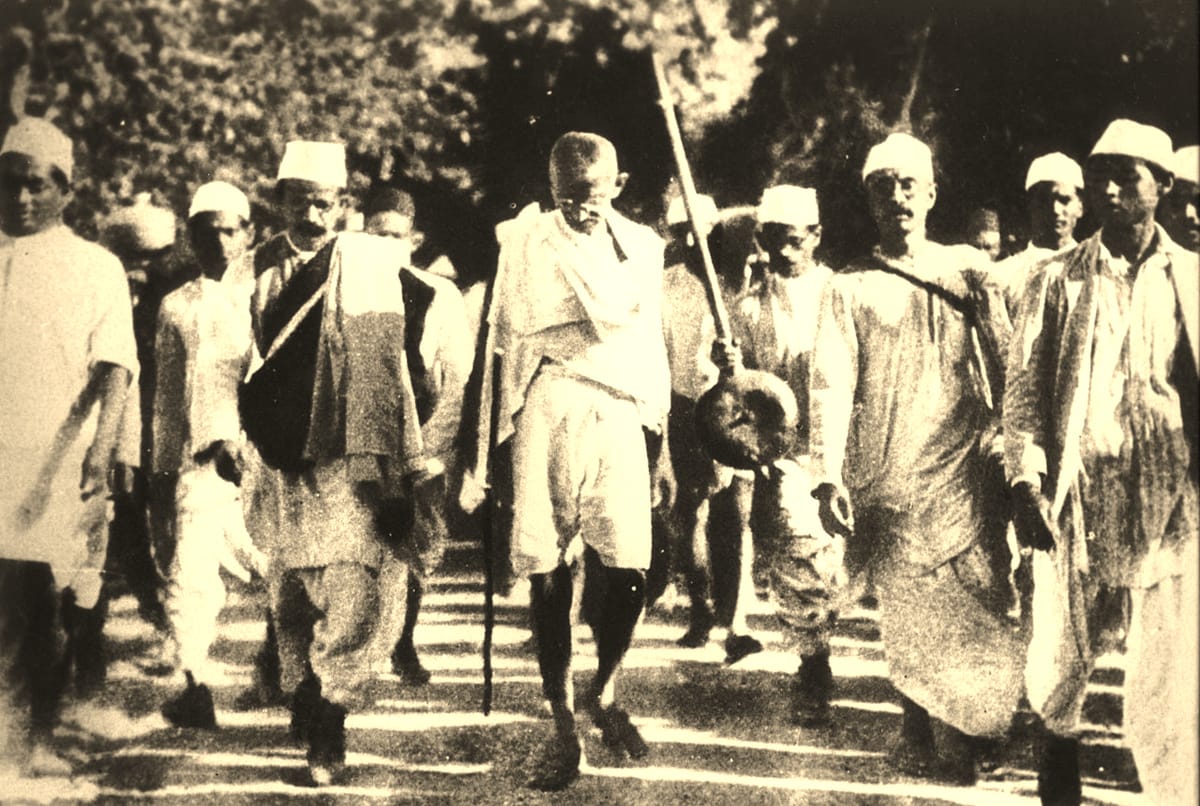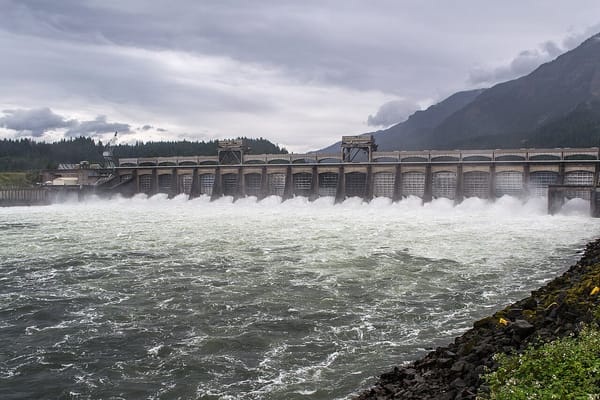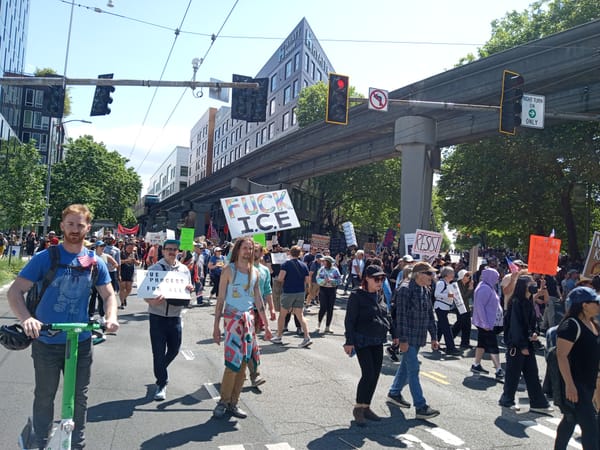It will take more than protests to fix this

Many of us will be returning to No Kings protests across Cascadia this weekend. It's the sequel to the June 14 rallies and marches that brought between 4 and 6 million people into the streets in 2,100 cities to demonstrate against Donald Trump's authoritarian regime.
These massive protests are a good thing, making clear that a large section of the US population is fed up with the Trump administration's descent into fascism. It's a festive and emotional day, one that makes us feel as though we're finally able to do something to fight this.
And no, we are not all terrorists, as many Republican leaders have tried to paint us. We don't, as Tom Emmer says, "hate America." We hate fascism.
But after the protests are over and the giant Trump puppets and clever banners are put away – what next?
For better or worse, we're in a new era, one in which Republicans, seeking to consolidate their power, have thrown away the rules. In a recent essay for Liberal Currents, "Democrats Must Embrace a War Mindset," Samantha Hancox-Li argues that we are now in a war mindset – not a literal armed conflict – but a battle in which old political norms have been discarded. This new conflict means that those who dissent must act in creative and risky ways:
Peacetime breeds rule-followers. In war the rules go out the window. The old certainties become terrifyingly malleable. You are assailed on all sides by phantasms: and it takes a particular kind of moral courage to see your way through, take the initiative, and make the enemy more afraid of you than you are of him.
One of those risky approaches to ending fascism here in the Pacific Northwest, which I hammer at again and again, is a non-violent movement toward political autonomy for Cascadia. This is not an easy path, to be sure, but it is one that if achieved would not only rid us of Trump's authoritarian regime, but would allow us the opportunity to create a system of government better than the US constitution, which has clearly failed to protect us from tyranny.
What will a journey toward independence look like?
Movements seeking radical political change require drama, require a narrative that captures our moral imagination. It wasn't "a quarter million people attended the March on Washington" that brought about civil rights reforms in the US, but the stirring words of Martin Luther King, Jr. and images of brave protesters being doused with water cannons.
Gandhi's salt march of 1930 was ingenious not for its grand demands (it merely asked that the people of India be allowed to make their own salt and not pay a tax on it to the British government) but its uncertain outcome and unfolding drama. Would they be arrested? How many would join them? Can they really walk 200 miles? Would their demands be ignored?
What comes next for Cascadia must be extremely creative and capture the world's attention. People are paying attention to Portland because of inflatable frog costumes. People pay attention when ICE throws to the floor or clubs leaders who are actually willing to put their bodies at risk.

In "How Did Gandhi Win? Lessons from the Salt March," Mark Engler and Paul Engler write:
"...momentum-driven movements aim to alter the political climate as a whole, changing perceptions of what is possible and realistic. They do this by shifting public opinion around an issue and activating an ever-expanding base of supporters. At their most ambitious, these movements take things that might be considered politically unimaginable—women’s suffrage, civil rights, the end of a war, the fall of a dictatorial regime, marriage equality for same-sex couples—and turn them into political inevitabilities."
We are required to make the unimaginable inevitable.
How will we do this? It will involve putting our bodies at risk, confronting federal agents in non-violent but non-cooperative ways. It may involve a general strike, where massive numbers of people shut down the economy by refusing to work.
It could involve a million-person human chain like the Baltic Way, which sparked the Baltic States' independence from the Soviet Union. It will involve humor, defiance, and pranks. It could involve refusing to pay taxes and publicly burning our IRS returns. It will require many of us to do this.
Because our strength is in our numbers. Alone, they can imprison us one by one. But they cannot imprison an entire region.
--Andrew Engelson
If you're interested in join the movement for autonomy, please visit Cascadia Democratic Action and sign up for our email alerts sharing ways you can participate.





